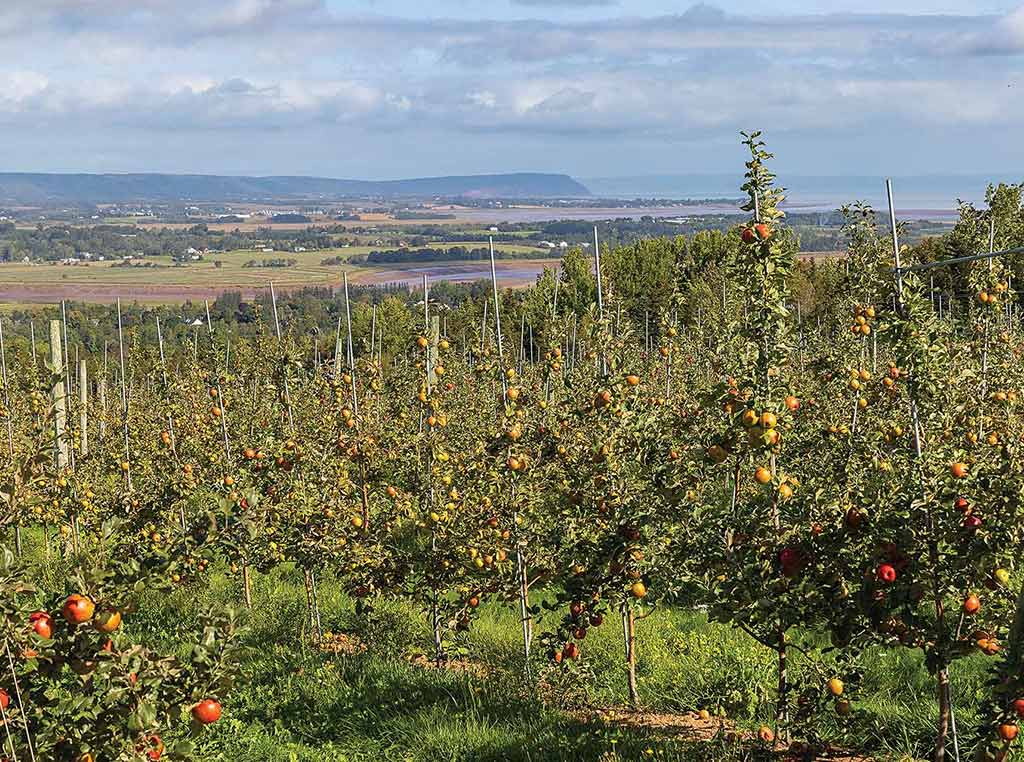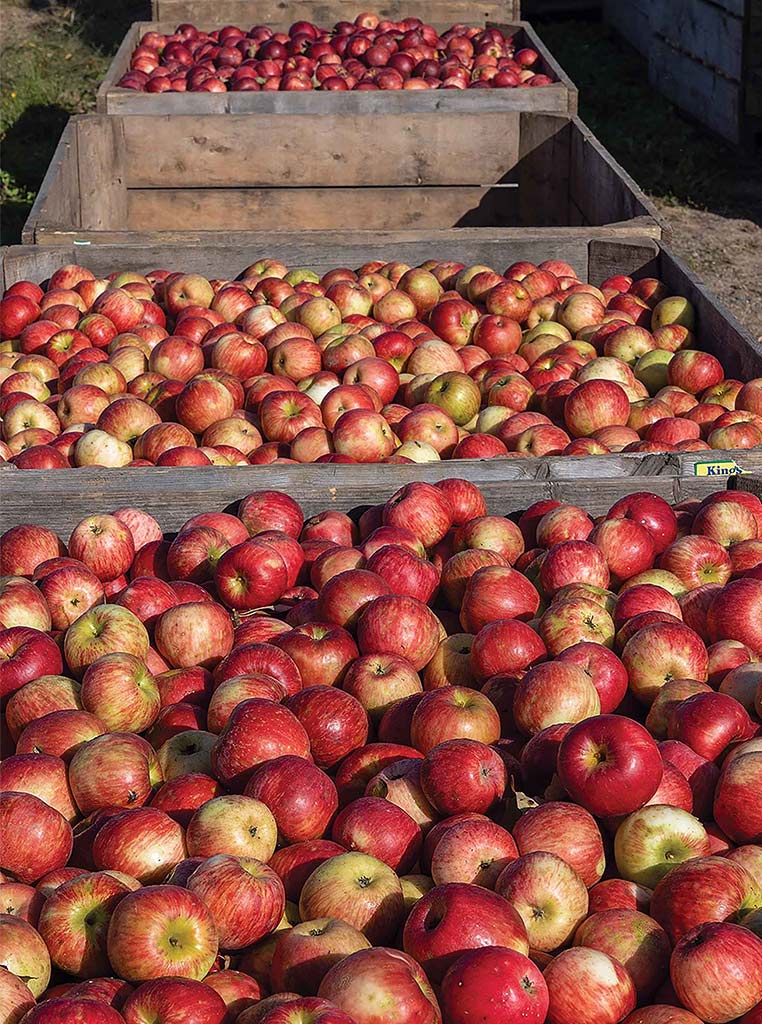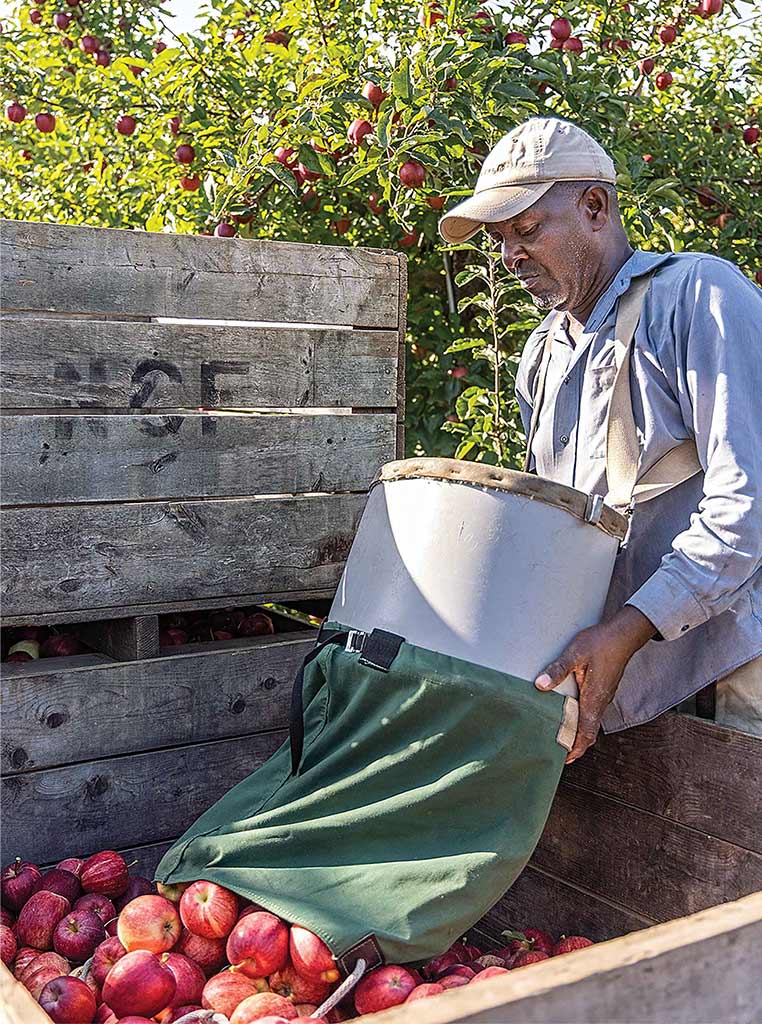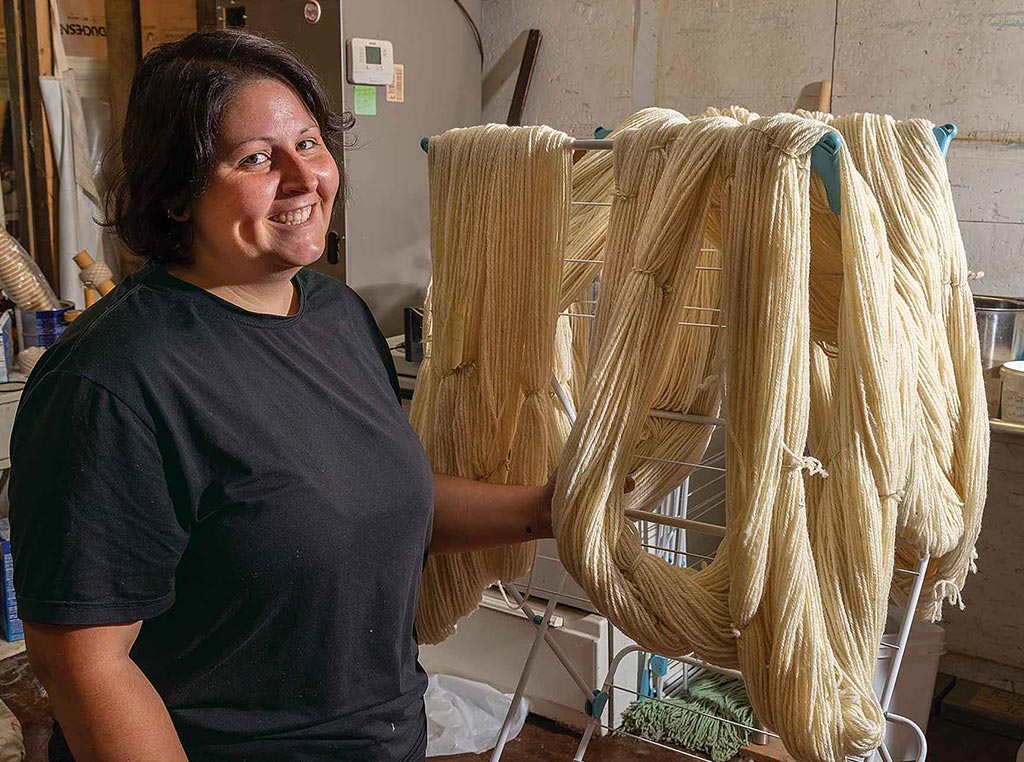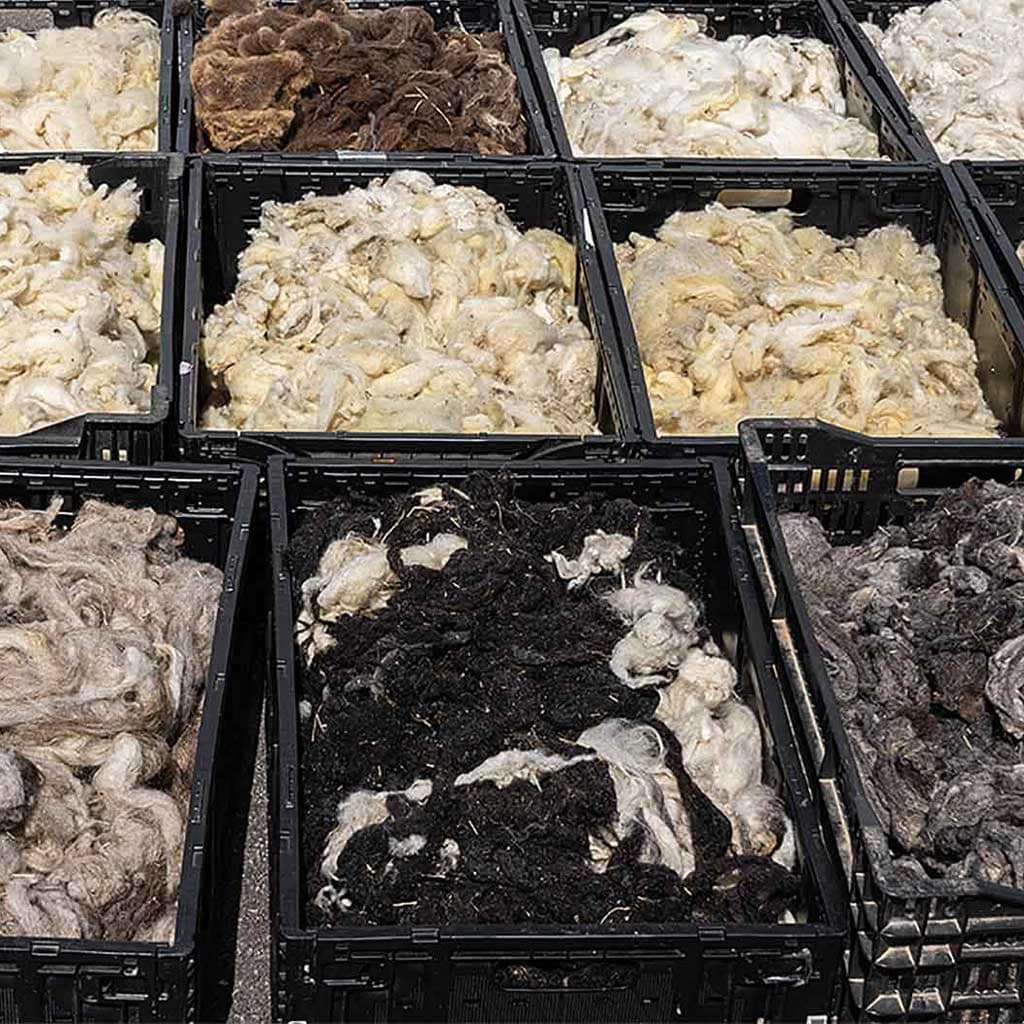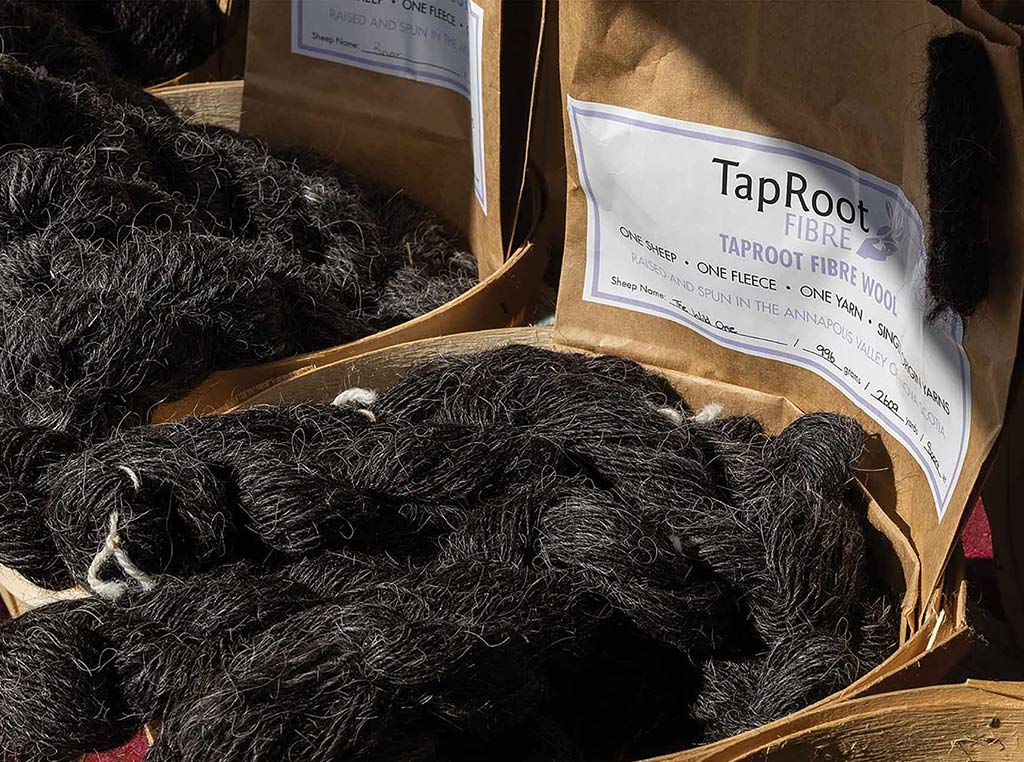Farm Operation, Agriculture March 01, 2023
Keeping It Fresh
.
Couple only adds new ventures that will fit in with their core values.
Some farmers diversify to add new revenue streams to their operation; others do it because they crave new intellectual challenges to retain their enthusiasm for farming. But for most producers, like Josh Oulton and Patricia Bishop, owners of TapRoot Farms in Port Williams, Nova Scotia, diversifying offers both.
Today the couple's operations span a wide selection of enterprises. These include one of the province's most successful organic CSA (community supported agriculture) operations, a dairy, apple and cherry production, sprout production and now a fiber operation. Plus they partner with Patricia's parents' operation, Noggins Corner Farm, to provide their five stores across the province with organic fruits and vegetables.
Above. TapRoot Farms has grown into a diverse set of ventures. These include their popular CSA, supplying organic produce to Noggins Corner Farm's stores and local supermarkets, orchard operations, sprout production, a dairy, and now fiber.
Core values. "All our ventures come back to our core values," Josh says. "We have a hyper-local mindset; our goal is to build a circular economy in our area."
Josh and Patricia met as students at the Nova Scotia Agriculture College and quickly bonded over their shared love of farming. Patricia was keenly interested in the environment and sustainable development, so going into organic vegetable production was an obvious choice when they bought their first farm in 2007.
"When we first started growing organics, we were under the understanding you grow organics and sell your food," Josh says. "But like a lot of new farmers we found out that wasn't so. This led us to explore commercialized CSAs to market and capture more value for our vegetables in 2009. The public's interest was phenomenal; this was before social media took off, so it was spreading by word of mouth. Everybody wanted to hear our story."
The operation quickly more than doubled their expected CSA membership. At their peak they were providing weekly food baskets to 600 members. After the frenzy of their first few years, interest in CSAs started to wane and more competitors entered the field. Today their CSA supports about 200 families and provides them with a secure source of revenue despite the sector's highly competitive nature. It accounts for about one third of their farm gate revenue. The rest of their production is sold through Noggins Corner Farm's stores and at local supermarkets.
"I think people really want to support us," Josh says. "They like the CSA idea, but after a while they just get sick and tired of someone else choosing their food."
Baskets require careful planning and selection, and they soon learned that running a CSA was less about the variety of produce that they could grow on their land and more about meeting consumers' expectations.
They've now taken the concept to a new level by supporting the community in return, in numerous ways. TapRoot Farms offers garden plots, donor-supported food boxes, gleaning, makes donations to food banks, as well as shares know-how with those who want to grow their own food.
Above. Josh and Patricia's latest venture, TapRoot Fibre Spinning Mill, processes wool and linen (flax) fiber and spins it into yarn. They've high hopes for it, but linen has proven to be more challenging than anticipated.
Sharing knowledge. They're also passionate about wanting to share their knowledge about agriculture. Josh and Patricia offer farm internships. They help people connect to the food system with farm stays, farm tours, farm walks, and dinners at the farm.
TapRoot Fibre Spinning Mill is the pair's latest project. It processes wool and linen (flax fibers) into yarn. The couple first looked into fiber in 2011 and it quickly grew into a venture that has taken Josh around the world. But spinning yarn from linen has proven to be much more challenging than they expected.
"We're hoping that flax will one day be a revenue generator too," Josh says. "We've invested a lot in equipment to process short flax fiber and spin it into yarn. After many challenges, it's working quite well. Now we just need to find all the staff we need to run it. ‡
Read More

AGRICULTURE, SUSTAINABILITY
Ancient Agrarians
Turning back the clock on inputs and varieties.


